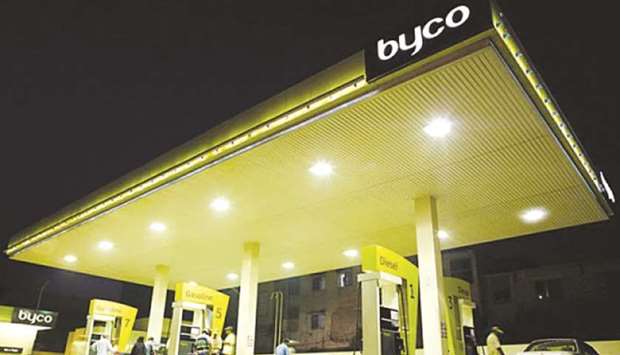Byco Industries Inc is set to become Pakistan’s biggest fuel maker when it restarts an oil refinery next month that was shuttered almost two years ago after a fire.
The Karachi-based company will resume operations next month and boost output to about 85,000 barrels a day of refined products within three months, chief executive officer Amir Abbassciy said in an interview. Pakistan’s fuel demand will grow between at least by 7% to 10% between now and 2020, he said.
“Pakistan is one of the lowest per capita users of oil today,” Abbassciy said. “As the economy ramps up, this demand is going to rise by leaps and bounds.”
South Asia’s second-largest economy is expected to grow at the fastest pace in more a decade as China finances energy and construction projects valued at more than $50bn that make up part of its “One Belt, One Road” plan. That’s raising expectations that demand for fuel will rise, encouraging domestic refiners to increase production and reduce dependence on imports.
The refinery, in the Hub area of Balochistan province, was damaged when a crude oil heater caught fire only three months after it was inaugurated in 2015 by Prime Minister Nawaz Sharif. Byco Group then decreased headcount by a third to about 600 last year ahead of a merger of all business, said Abbassciy. The refinery has a nameplate capacity of 120,000 barrels a day, according to the company’s website.
The group - including two refineries, a fuel retailer and an offshore loading buoy - is merging all its units into listed Byco Petroleum Ltd. New shares are being issued for the merger that will be completed around July 10, Abbassciy said.
The company’s shares rose by daily limit in Karachi trade before closing 4.2% higher at Rs19.2. They have dropped 21% this year compared with 1% decline in the nation’s benchmark KSE100 Index. Its revenue is forecast to double to $2bn in fiscal year starting July, Abbassciy said.
The company will get a boost in profitability from merging both refineries, said Abdul Azeem, head of Research at Spectrum Securities Pvt. “Refining is good business,” Azeem said. “Pakistan imports a lot and this will save foreign exchange.”
Pakistan spent $8.8bn to import petroleum products, which made up about a fifth of the total import bill in the 10 months ended April, according to the Pakistan Bureau of Statistics. The demand will further rise once trucks start moving between China and Pakistan’s Gwadar port, where activity is expected to peak next year, said Azeem.
Pakistan’s gross domestic product is forecast to rise 5.1% this year and 5.5% next year, according to the median estimates in a Bloomberg survey.
“We are very bullish as far as the economy is concerned,” Abbassciy said.

Byco Industries will resume operations next month and boost output to about 85,000 barrels a day of refined products within three months, chief executive officer Amir Abbassciy said.
